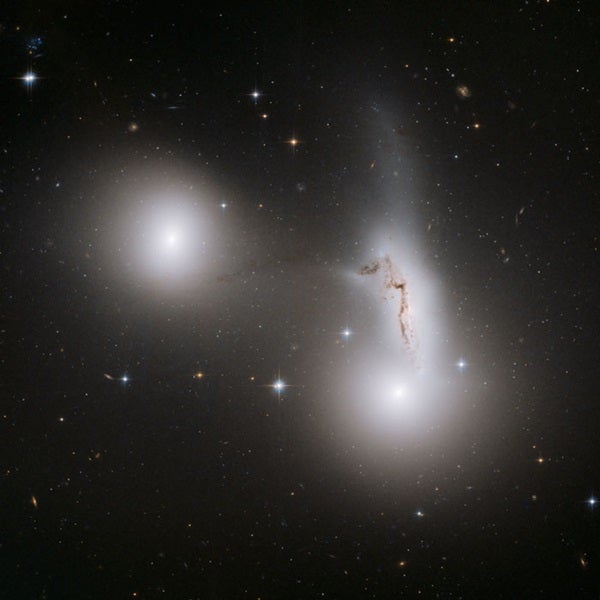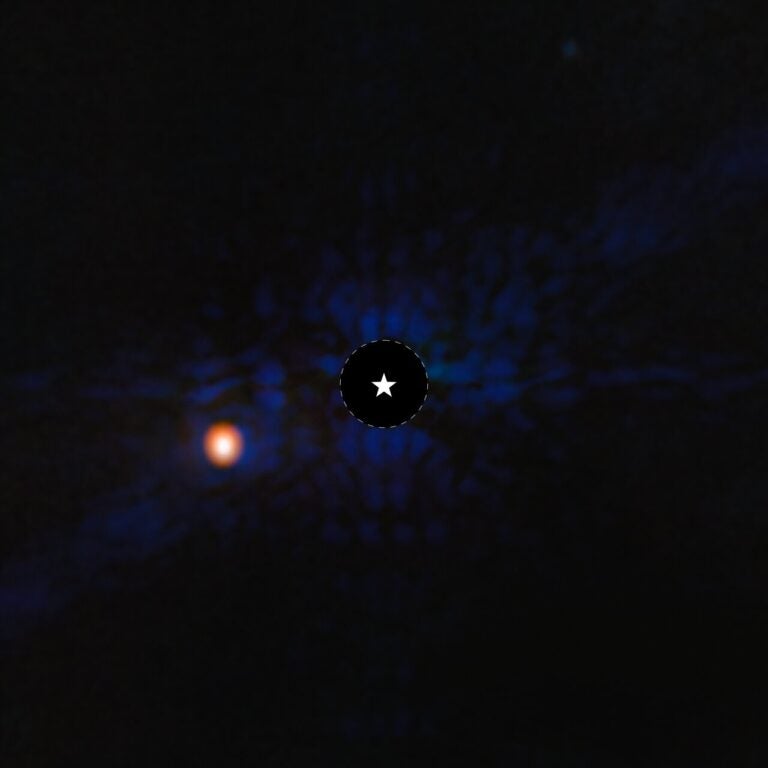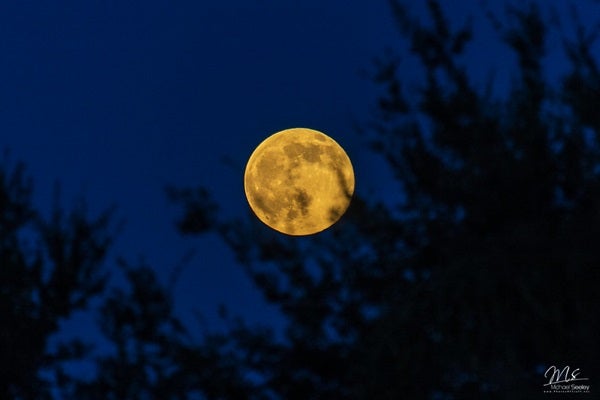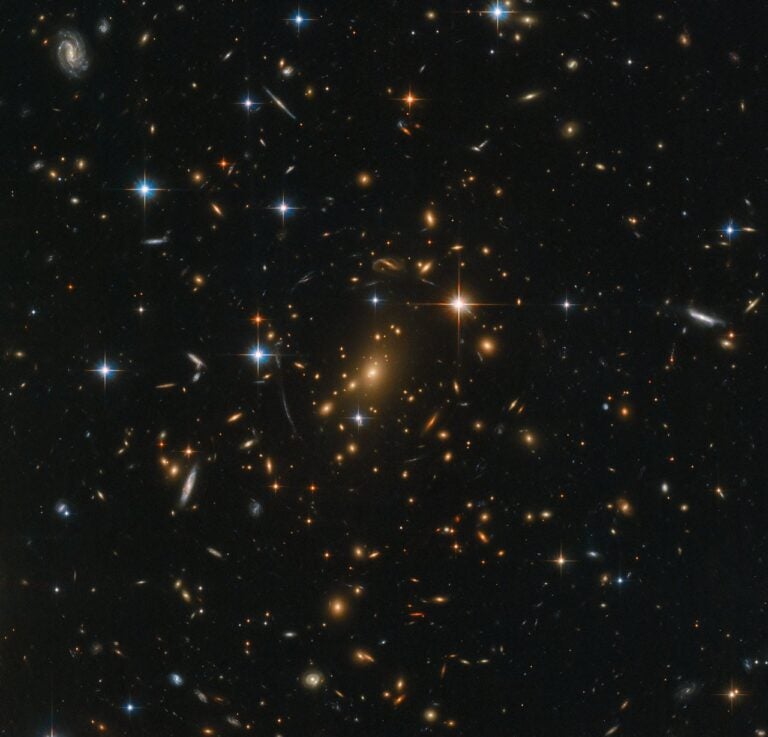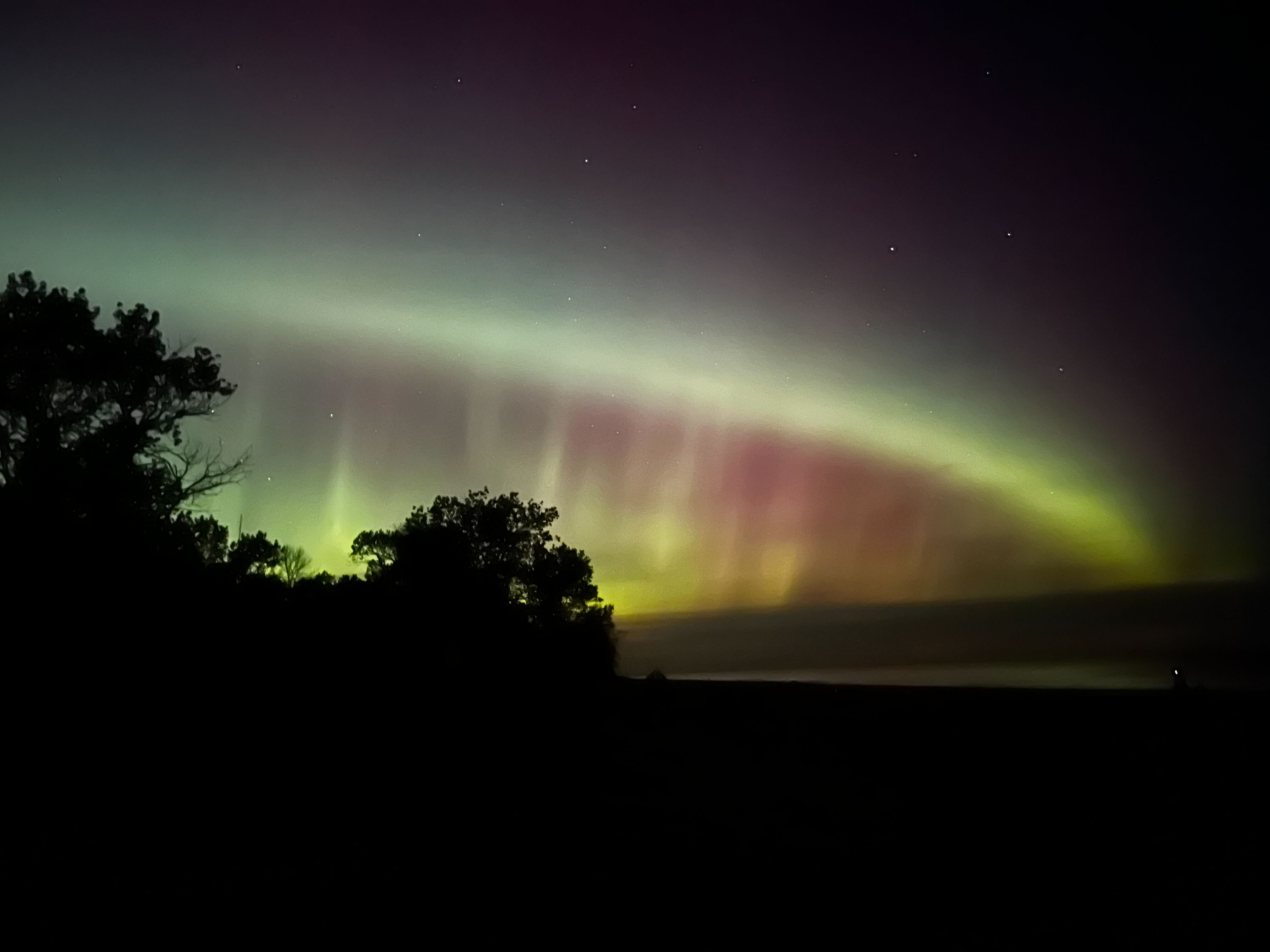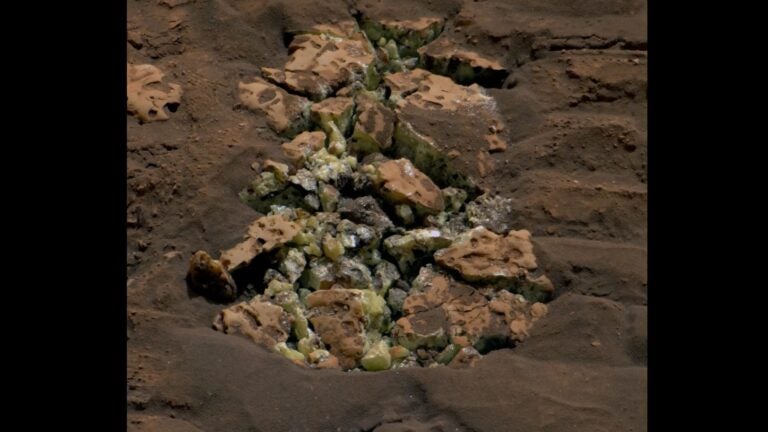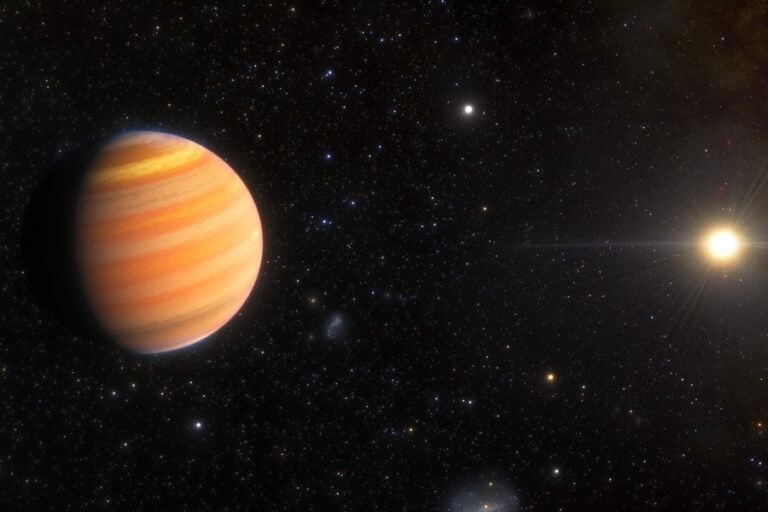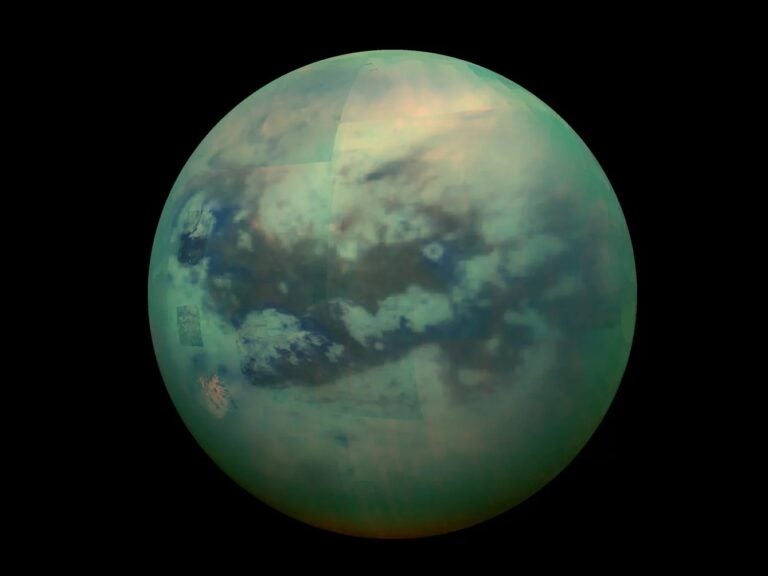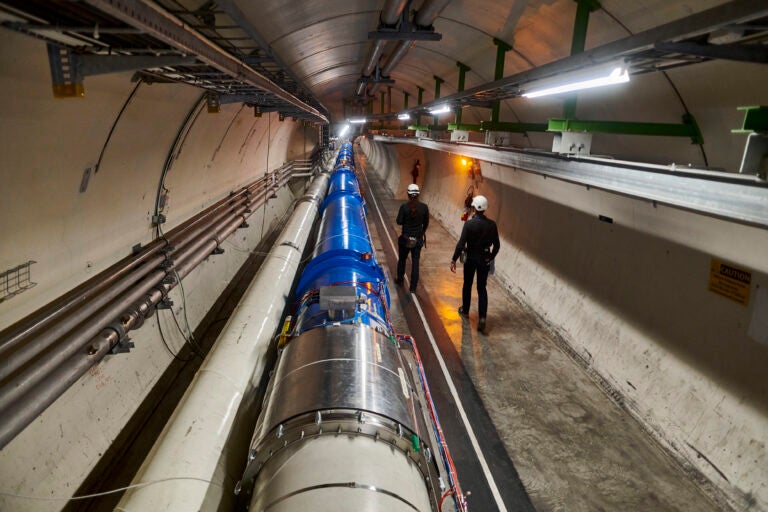This NASA Hubble Space Telescope image shows three galaxies playing a game of gravitational tug-of-war that may result in the eventual demise of one of them.
Located about 100 million light-years away in the constellation Piscis Austrinus the Southern Fish, the galaxy interaction may ultimately lead to the three reforming into two larger star cities.
The three galaxies – NGC 7173 (middle left), NGC 7174 (middle right), and NGC 7176 (lower right) – are part of Hickson Compact Group 90, named after astronomer Paul Hickson who first cataloged these small clusters of galaxies in the 1980s. NGC 7173 and NGC 7176 appear to be smooth, normal elliptical galaxies without much gas and dust.
In stark contrast, NGC 7174 is a mangled spiral galaxy that appears as though it is being ripped apart by its close neighbors. The galaxies are experiencing a strong gravitational interaction, and, as a result, a significant number of stars have been ripped away from their home galaxies. These stars are now spread out, forming a tenuous luminous component in the galaxy group.
Ultimately, astronomers believe that NGC 7174 will be shredded and only the two “normal” elliptical galaxies – NGC 7173 and NGC 7176 – will remain.

